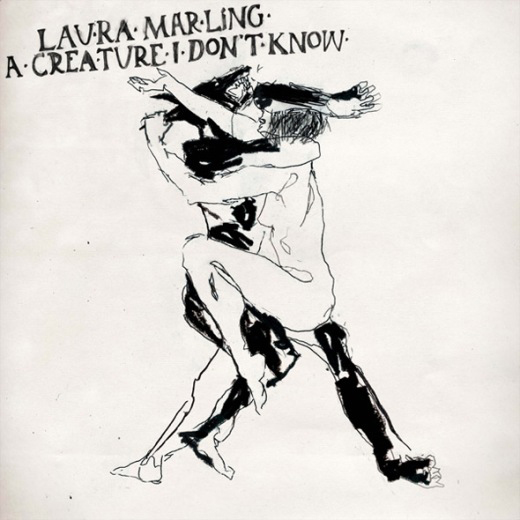Soundbite: "A Creature I Don't Know"

Credit: Ribbon Music
A Creature I Don't Know
Laura Marling
Ribbon music
![]()
![]()
![]()
![]()
By Madeleine Flynn
Sept. 12, 2011 1:04 a.m.
What does one do when a ravenous beast ““ literal or metaphorical ““ comes calling?
Invite him to bed, of course. At least, that’s what British folk rock artist Laura Marling would do.
“The Beast” ““ the centerpiece of Marling’s gorgeous third album, “A Creature I Don’t Know” ““ finds the singer grappling with a monster and perfectly represents the new direction of Marling’s music.
While still possessing the darkly melodious folk sound of Marling’s previous recordings, the new album is louder, more raucous and altogether better than the artist’s previous work.
With this latest album, Marling distances herself further from the nu-folk movement out of which she and other artists, such as Mumford and Sons and Noah & the Whale, emerged.
The song begins as most Marling songs do ““ with Marling’s gorgeous, smoky voice quavering quietly over delicate acoustic guitar. Gradually, the song shifts into new and exciting territory. Like a gathering storm, fuzzed-out electric guitar noise, thumping drums and crashing cymbals slowly join the fray, threatening to swallow Marling’s voice.
“Put your eyes away if you can’t bear to see your old lady laid down next to the beast. Tonight he lies with me. Tonight he lies with me, and here come the beasts,” she sings, her voice becoming a howl as it struggles to remain audible above the thunderous noise.
Much of the album has a similar stormy, melancholic tone. Throughout, Marling cloaks themes of rage, loss and the search for answers in vivid stories and poetic lyrics that reference classical mythology and John Steinbeck’s hometown of Salinas.
The lyrics can be hard to penetrate but are often made more interesting because of their ambiguity. One has to poke and prod to find a clear meaning, the beauty of Marling’s shifting narrative perspective being that nearly anyone can find a relatable meaning from one line to the next.
Out of this thick stew of metaphors, guitars, banjos, drums and the occasional horn or piano, moments of clarity emerge.
In “Don’t Ask Me Why,” Marling longs for the simplicity and innocence of childhood. Over soaring violin strings and chiming electric guitar, she laments the loss of certainty brought on by adulthood.
Elsewhere, she grapples with love and loss. In the soft and sorrowful “Night After Night,” Marling tells a poignant tale of two lovers who have grown apart but remain devoted to one another.
“Dear lover forgiven, my love is driven by rage,” she sings. “Oh, I should just leave you instead of deceive you, but I don’t. Night after night, day after day, would you watch my body weaken, my mind drift away?”
When the album finally ends with the hopeful trill of “All My Rage,” it is as if the clouds have cleared and a monstrous gale has passed.
“Now all my rage been gone. I leave my rage to the sea and the sun,” Marling sings repeatedly.
If rage provokes so much captivatingly beautiful music out of Laura Marling, one has to hope she will endure more of it in the future.
Email Flynn at [email protected].


